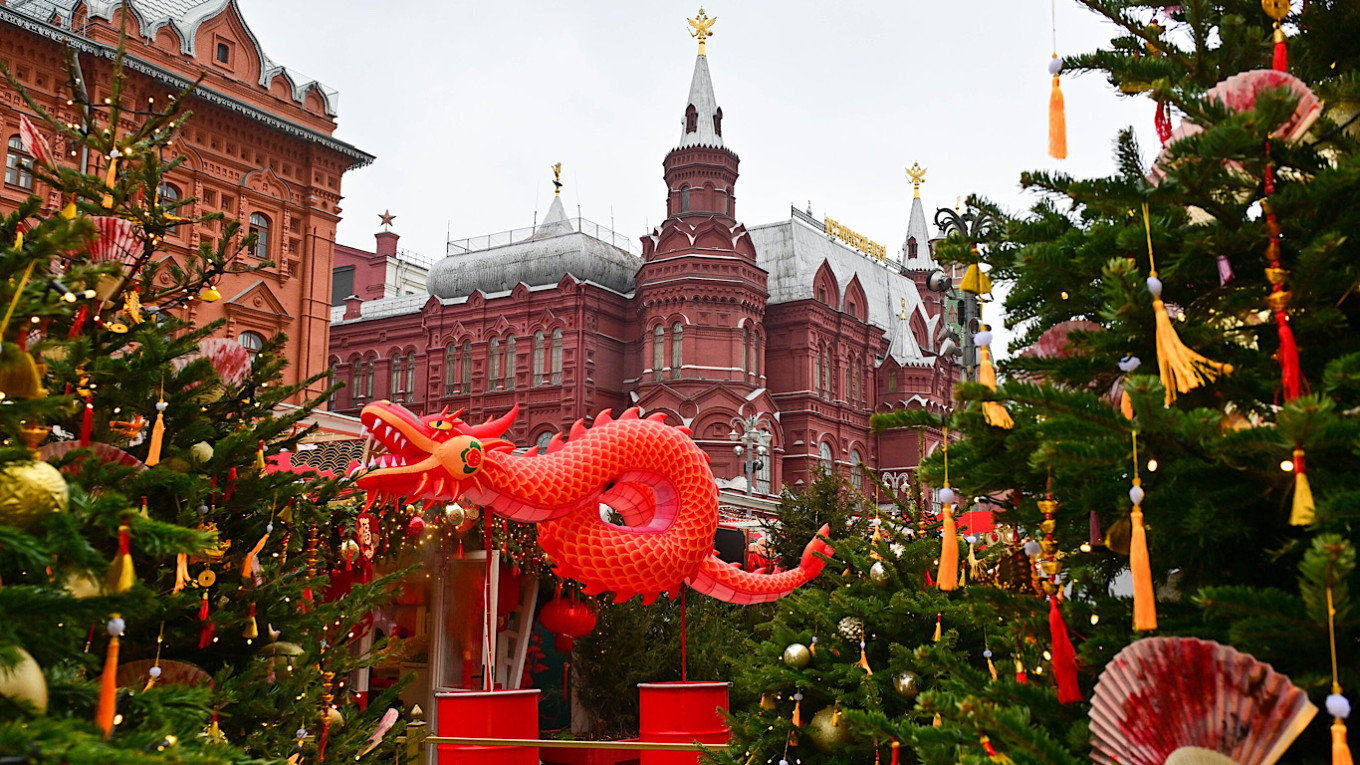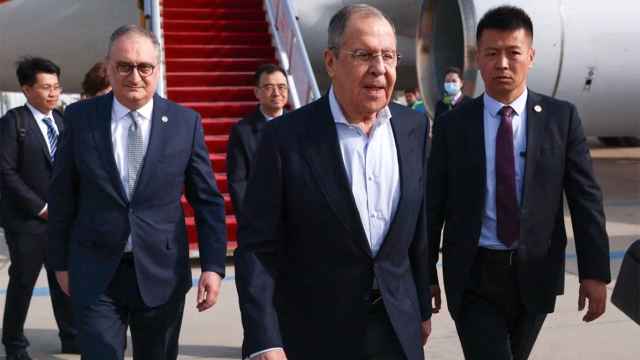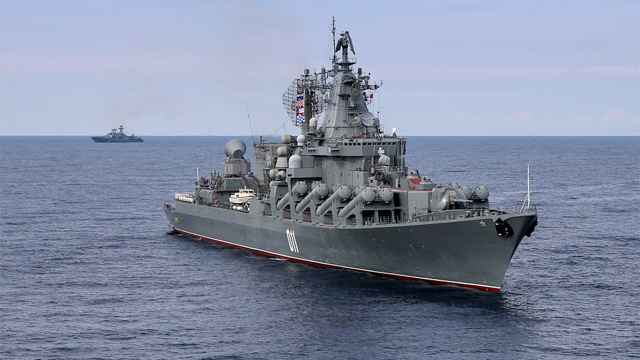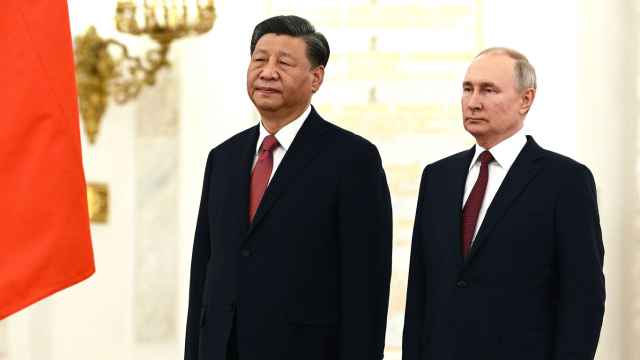When President Vladimir Putin and his counterpart Chinese Xi Jinping met this month in Beijing, the Russian leader hailed relations between the two countries as being at an “unprecedented level.”
Beyond the headline-grabbing diplomacy, China’s presence in everyday life in Russia is becoming increasingly pronounced, from language and the arts to tourism and consumer goods.
State push for cultural diplomacy
One year ago, to loud applause at Beijing’s National Grand Theatre, Putin and Xi declared 2024-2025 the Years of Culture of China and Russia, planning over 230 events across almost 100 cities in Russia and China.
In Moscow, the State Tretyakov Gallery is showcasing the work of Chinese contemporary artist Han Yuchen, known for his oil paintings, photography and calligraphy.
April saw the Shenzhen Opera and Dance Theatre bring its play “Wing Chun” to Moscow’s Bolshoi Theatre. The Bolshoi’s ballet company and orchestra returned the cultural exchange with a tour in Beijing and Shenzhen in May.
This year’s Chinese New Year festival at Manezhnaya Ploshchad in central Moscow attracted such huge crowds that people were lining up long before the gates opened.
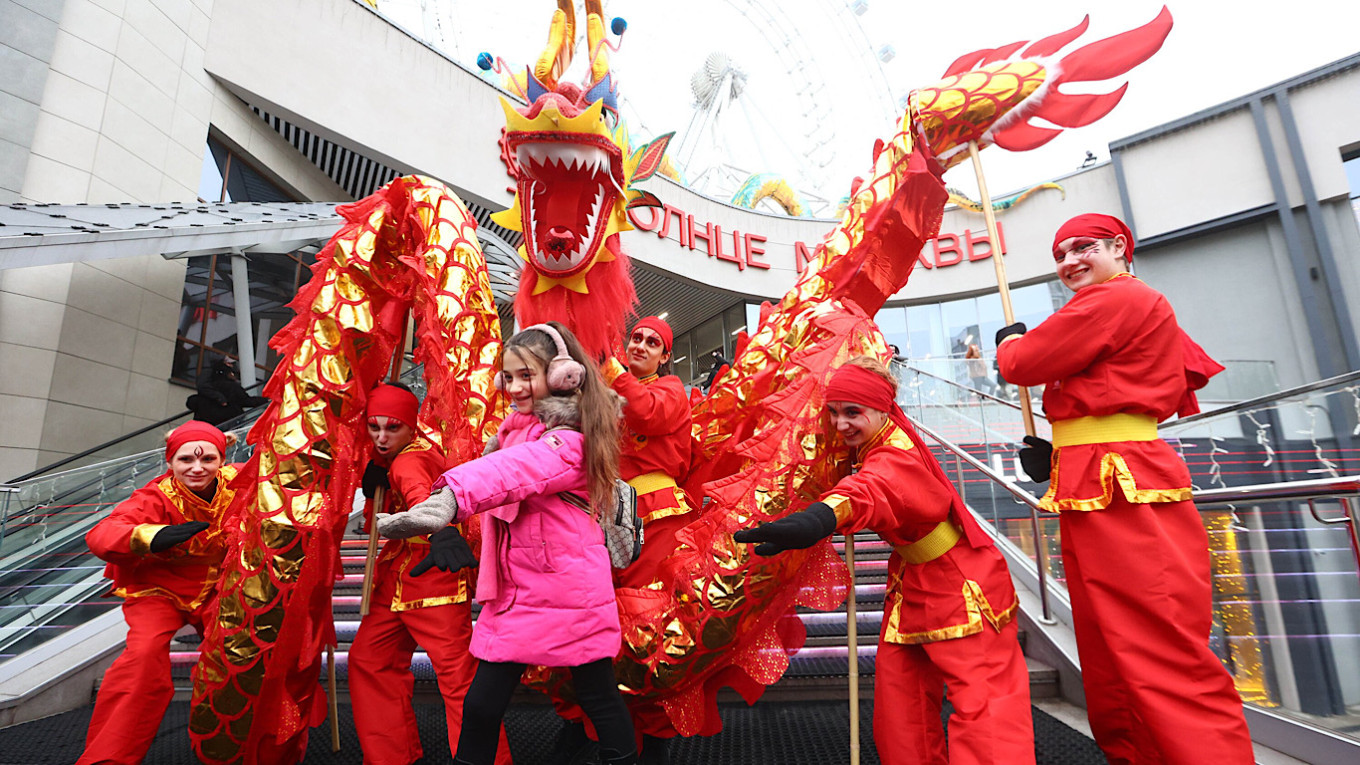
Western countries cut cultural ties with Moscow in addition to imposing economic and political sanctions after the start of Russia’s full-scale war in Ukraine in 2022.
Russia’s so-called pivot toward China had already been underway before then. But the war in Ukraine — and the deep crisis in Russia’s relations with the West that followed — made China’s presence in Russians’ lives far more visible than ever before, said Temur Umarov, a fellow at the Carnegie Russia Eurasia Center.
“In this way, Russia wants to demonstrate its interconnectedness with the world — if not with Western civilization, but with China,” he said.
Language exchange
Growing numbers of Russians are keen to study Chinese, seeing it as a highly competitive skill for career advancement alongside English.
Chinese is now the second-most-popular foreign language in the country among wealthy Russians, trailing only English. The number of schools in Moscow offering Chinese classes has also risen by 123%.
Demand for specialists fluent in Chinese has surged more than 1.6 times between 2023 and 2024, according to a survey by job search service SuperJob. The highest demand comes from the transport and logistics industries.
“Chinese is indeed becoming increasingly popular,” one Russian woman studying the language said, speaking on condition of anonymity for safety reasons. “At first, I was drawn to its uniqueness, but later I realized its potential given the rising interest in China and its market.”
Another Chinese learner from Russia said the expanded job opportunities also motivated her to study it.
“There are so many openings requiring Chinese skills, especially in logistics and economics,” she said.
Overall, at least 80,000 people in Russia are studying Chinese.
Russia and China will also hold Cross Years of Education in 2026-2027, Putin announced, with more than 51,000 Chinese students studying in Russia and around 21,000 Russians enrolled at educational institutions in China.
Daily life
Temur Umarov, a fellow at the Carnegie Russia Eurasia Center, said that China’s presence in Russians' everyday lives has become more noticeable, but noted that it is to a certain extent “artificial.”
“The worse Russia’s relations became with European and Western countries, the greater China’s presence in Russia grew,” Umarov told The Moscow Times.
For many Russians, contact with Chinese consumer culture has long been a part of life. From smartphones to shoes, the “Made in China” label is ubiquitous, especially since Western sanctions cut off access to some Western consumer products.
At least 71% and 57% of Russian respondents said they had worn Chinese clothing and shoes, respectively, according to the independent Levada Center pollster.
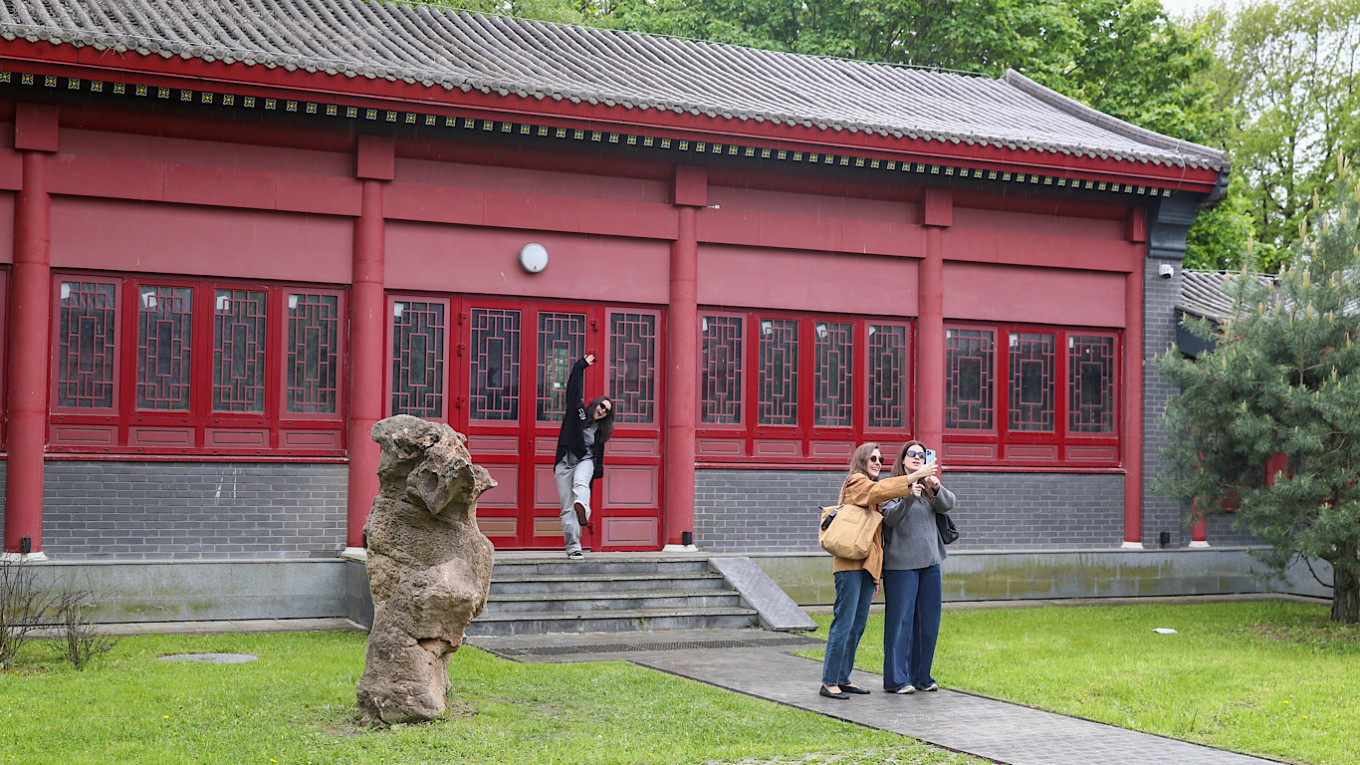
Tourism adds another layer. While roughly 6% of Russians have visited China, a modest share compared with Europe or the U.S., the numbers are much higher in Russia’s Far East, where nearly half the population has crossed the border, said Levada.
The introduction of a visa-free regime, which will allow Russians to travel in China for up to 30 days from Sept. 15, is expected to further increase tourism, shopping and people-to-people contact. Putin promised that Russia would introduce a similar regime for Chinese citizens.
Surveys by the Levada Center suggest that public perceptions of China have also shifted dramatically in the past two decades.
Two-thirds of respondents today see China as a “major power” compared to just one-fifth of respondents two decades ago.
Levada noted that Russians’ views on China largely took shape during Russia’s standoff with the West over Ukraine in the mid-2010s. In 2014, the year that Russia annexed Crimea and backed separatists in eastern Ukraine, the share of Russians who saw China as a friendly country doubled from 20% to 40%.
A similar surge took place after the full-scale invasion of Ukraine, with 65% of respondents considering China a friendly nation and favorable opinions of the country hitting a record 92%.
According to Levada, some also perceive the current Russia-China relationship as asymmetrical, with China standing to benefit more and Russia acting as a “raw materials appendage” and a market for Chinese goods.
However, when asked directly whether China poses a threat to Russia, only one in five respondents said it does, while the vast majority — 72% — disagreed.
According to Umarov, such shifts in how people respond in surveys or social polls can be explained not only by the actual geopolitical situation but also by how it is reflected in the news.
“At the moment, China is considered an ally,” Umarov told The Moscow Times. “So in social surveys, attitudes toward China appear very positive — but these responses mostly reflect how people echo what is conveyed to them through official channels.”
A Message from The Moscow Times:
Dear readers,
We are facing unprecedented challenges. Russia's Prosecutor General's Office has designated The Moscow Times as an "undesirable" organization, criminalizing our work and putting our staff at risk of prosecution. This follows our earlier unjust labeling as a "foreign agent."
These actions are direct attempts to silence independent journalism in Russia. The authorities claim our work "discredits the decisions of the Russian leadership." We see things differently: we strive to provide accurate, unbiased reporting on Russia.
We, the journalists of The Moscow Times, refuse to be silenced. But to continue our work, we need your help.
Your support, no matter how small, makes a world of difference. If you can, please support us monthly starting from just $2. It's quick to set up, and every contribution makes a significant impact.
By supporting The Moscow Times, you're defending open, independent journalism in the face of repression. Thank you for standing with us.
Remind me later.



